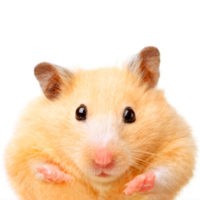As you may know, dogs and cats are by far the most popular pets in the US. However, smaller animals, like bunnies, hamsters, and gerbils, are also adorable. One thing these guys have in common is a need to chew. Fortunately, you can make many of your pet’s things yourself. Here, an Ellicott City, MD vet lists some DIY toys for pocket pets.
Mazes
Many smaller animals are burrowers by nature, and they really enjoy mazes. Make little tunnels out of cardboard, PVC pipe, or paper mache. The boxes canned beverages come in are great for this! If you use paper mache, stick with a simple flour-and-water glue.
Paper Bags
Paper bags are also very versatile. Stuff a lunch bag with herbs, hay, or snacks. Or, cut the end off, and make a little edible tunnel for your tiny pal.
Paper
Speaking of paper, plain paper is also a good option. You can shred plain copy paper, or crumple a piece up around a snack. If you want to keep your kids occupied for a while, have them make snowflake chains or just fold some paper into shapes.
Wood
Many wooden objects, such as spoons, thread spools, and children’s blocks, are fine. Avoid hard woods, like pine and cedar, as well as anything covered in decorative substances, like glitter, paint, dye, or glue. Items with small parts, sharp edges, or dangling threads are also best avoided. Ask your vet for more information.
Cardboard
The cardboard tubes from toilet paper and paper towel rolls can be turned into a variety of toys. One option is to cut them into rings and reassemble them as balls around a yummy treat. You can also stack them as pyramids. Or stuff them with safe herbs, grass hay, or shredded paper.
Branches
Branches can also make good chew toys. There are a few caveats here, however. First and foremost, be sure to stick with safe woods. Do some research, based on your specific pet. Many fruit trees, such as apple, are fine. Avoid hard woods, like pine and cedar, as well as poisonous woods, such as hemlock. You’ll also want to make sure the branches weren’t treated with pesticides, and are clean and free of mold and insects. Ask your vet for more information.
As your Ellicott City, MD vet clinic, we’re dedicated to offering great veterinary care. Contact us anytime!





